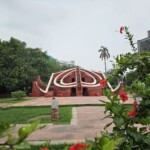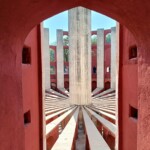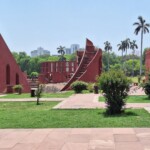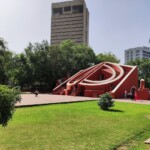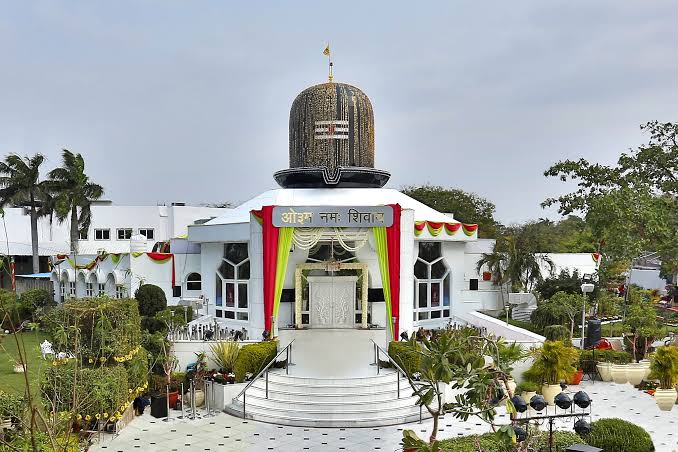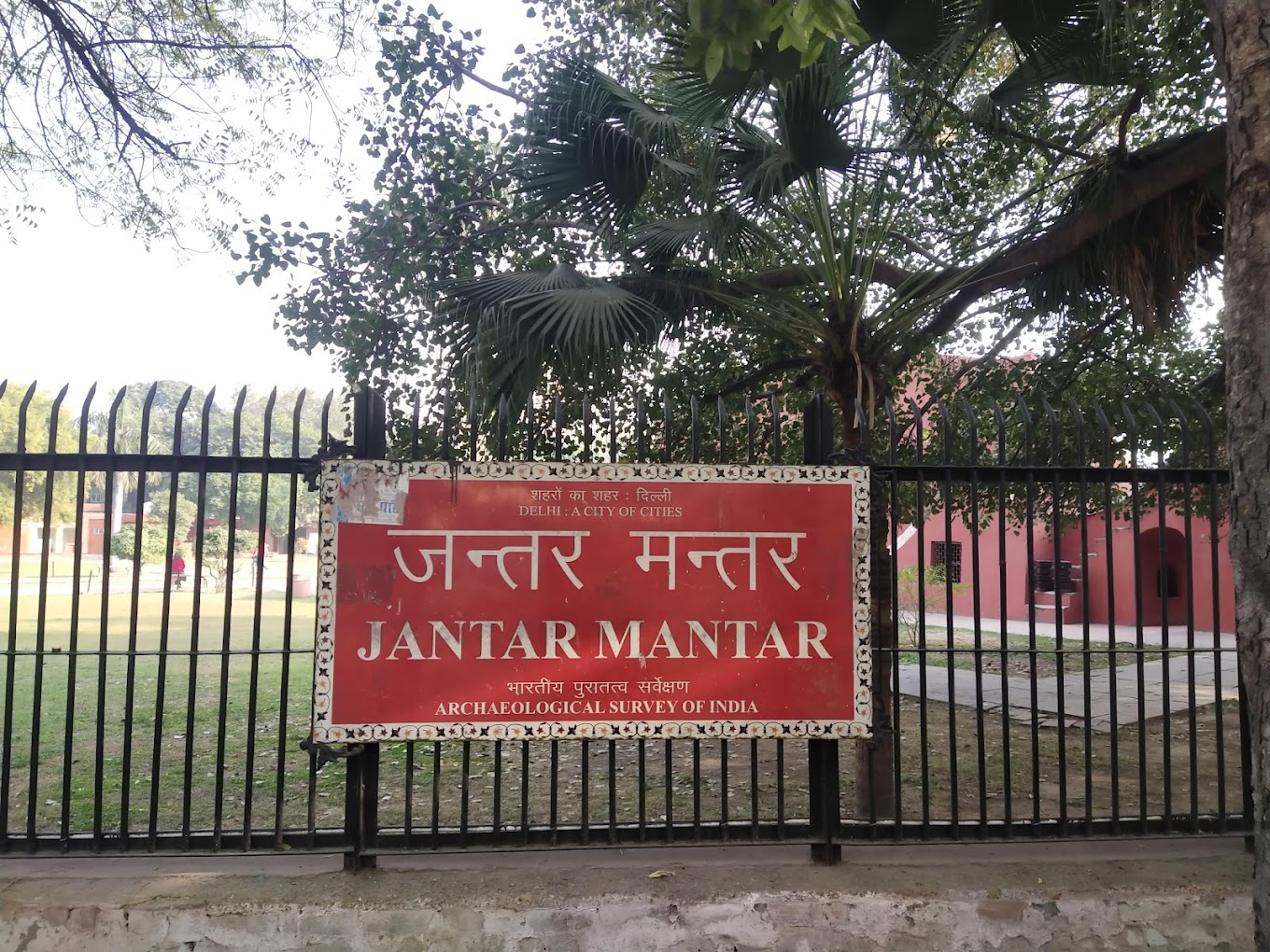
The city of Delhi is renowned for its rich history and architectural marvels. One such remarkable structure is Jantar Mantar, an ancient observatory that has stood the test of time. With its intriguing astronomical instruments and historical significance, Jantar Mantar attracts visitors from all over the world. In this article, we will delve into the details of Jantar Mantar Delhi, including its entry fee, timings, images, location, and entry ticket cost price.
Entry Fee
When it comes to visiting Jantar Mantar Delhi, there is a nominal entry fee. The current entry fee for Indian citizens is Rs. 50 per person, while for foreign tourists, it is Rs. 200 per person. The entry fee is subject to change, so it’s advisable to check the official website or inquire on-site for the most up-to-date information.
Timings
Jantar Mantar opens its doors to visitors from 9:00 AM in the morning and closes at 5:00 PM in the evening. It remains open on all days of the week, allowing individuals to plan their visit accordingly. The timings may be subject to change on public holidays or due to any unforeseen circumstances, so it’s always recommended to verify the timings before planning your visit.
Captivating Images of Jantar Mantar Delhi
History of Jantar Mantar
Jantar Mantar holds significant historical importance and was constructed by Maharaja Jai Singh II of Jaipur in the early 18th century. It was built with the purpose of studying astronomical movements and conducting precise observations. Maharaja Jai Singh II was an avid astronomer and mathematician, and Jantar Mantar served as a center for astronomical research during his time.
Architectural Marvels
The architectural design of Jantar Mantar is a testament to the advanced knowledge and skills of ancient Indian astronomers. The structure features a collection of architectural marvels, including large-scale astronomical instruments. These instruments were carefully designed and positioned to observe celestial movements, measure time, predict eclipses, and study various astronomical phenomena.
Astronomical Instruments
Jantar Mantar houses a range of intriguing astronomical instruments, each with its specific purpose. Some of the notable instruments include the Samrat Yantra (a massive sundial), Jai Prakash Yantra (a hemisphere used for mapping celestial coordinates), Ram Yantra (an instrument for measuring altitudes and azimuths), and Misra Yantra (a combination of several smaller instruments). These instruments showcase the brilliance of ancient Indian astronomers and their understanding of celestial mechanics.
Importance and Significance
Jantar Mantar holds immense scientific and historical significance. It stands as a testament to India’s rich scientific heritage and the remarkable astronomical knowledge possessed by ancient Indian scholars. The precise measurements and calculations conducted at Jantar Mantar played a crucial role in understanding celestial phenomena and advancing the field of astronomy during that era.
Location and Directions
Jantar Mantar is situated in the heart of Delhi, close to Connaught Place. The exact address is Sansad Marg, Connaught Place, New Delhi, Delhi 110001. It is easily accessible by various modes of transportation. Visitors can opt for metro trains, buses, taxis, or auto-rickshaws to reach the observatory. The nearest metro station is Patel Chowk Metro Station, located on the Yellow Line of the Delhi Metro.
Visiting Tips
To make the most of your visit to Jantar Mantar, here are a few tips to keep in mind:
- It’s advisable to visit Jantar Mantar during the early morning or late afternoon to avoid crowds and enjoy a peaceful experience.
- Wear comfortable footwear as you will need to walk and explore the observatory grounds.
- Carry a hat, sunglasses, and sunscreen, especially during the summer months, as the observatory is mostly an open-air space.
- Don’t forget to bring your camera to capture the unique architectural features and breathtaking views.
Entry Ticket Cost Price
As mentioned earlier, the entry ticket cost price for Indian citizens is Rs. 50 per person, while for foreign tourists, it is Rs. 200 per person. These fees help in the maintenance and preservation of this historical site.
Nearby Attractions
When visiting Jantar Mantar, you can explore other nearby attractions as well. Some popular ones include:
- Red Fort: A majestic fort complex known for its rich Mughal architecture and historical significance.
- India Gate: A prominent war memorial honoring the Indian soldiers who sacrificed their lives during World War I.
- National Museum: An extensive museum showcasing Indian art, culture, history, and artifacts.
How to reach Jantar Mantar Delhi
To reach Jantar Mantar in Delhi, you can follow these directions:
- By Metro: The nearest Metro station to Jantar Mantar is Patel Chowk Metro Station, which is on the Yellow Line of the Delhi Metro. From the Metro station, you can take a short walk to reach Jantar Mantar.
- By Bus: Delhi has a well-connected bus network, and there are several bus stops near Jantar Mantar. You can check for buses that pass through Sansad Marg or Connaught Place, which are in close proximity to Jantar Mantar. From the bus stop, you can easily walk to the observatory.
- By Taxi or Auto-rickshaw: Taxis and auto-rickshaws are readily available in Delhi. You can hire a taxi or an auto-rickshaw from any part of the city and provide the driver with the destination as Jantar Mantar. It is advisable to negotiate the fare or use a metered taxi/auto-rickshaw for a fair price.
- By Private Vehicle: If you have your own vehicle or are traveling in a hired cab, you can use GPS or navigation apps to guide you to Jantar Mantar. The exact address is Sansad Marg, Connaught Place, New Delhi, Delhi 110001. There are parking facilities available near Jantar Mantar where you can park your vehicle.
It is recommended to plan your visit during non-peak hours to avoid traffic congestion, especially in the central parts of Delhi. Following these directions should help you reach Jantar Mantar conveniently and explore the fascinating astronomical instruments and historical significance of this iconic observatory.
Conclusion
Jantar Mantar Delhi stands as a remarkable testament to India’s scientific prowess and architectural brilliance. Its awe-inspiring astronomical instruments and historical significance make it a must-visit attraction for history enthusiasts, architecture aficionados, and anyone with an interest in astronomy. So, plan your visit to Jantar Mantar and embark on a journey through time to witness the marvels of ancient Indian astronomy.
FAQs Jantar Mantar Delhi
Is there an entry fee for visiting Jantar Mantar?
What are the timings of Jantar Mantar?
What is the historical significance of Jantar Mantar?
What are the architectural marvels at Jantar Mantar?
What are some nearby attractions to visit along with Jantar Mantar?
Jantar Mantar Delhi Location Map
Further Reading:
India Gate Delhi Entry Fee, Timings, History, Images & Location
Kalka Ji Mandir Delhi कालकाजी मंदिर,दिल्ली Timings, History, Entry Fee, Images, Aarti, Location
Akshardham Temple Delhi, History, Timings, Entry Fee, Architecture, Images & Location
Chhatarpur Temple Delhi, Pooja, Entry Fee, Aarti Timings
Best Places to Visit in New Delhi 2023
Top 13 Places worth visiting in Delhi!!
Delhi – The National Capital City with Historical Importance

